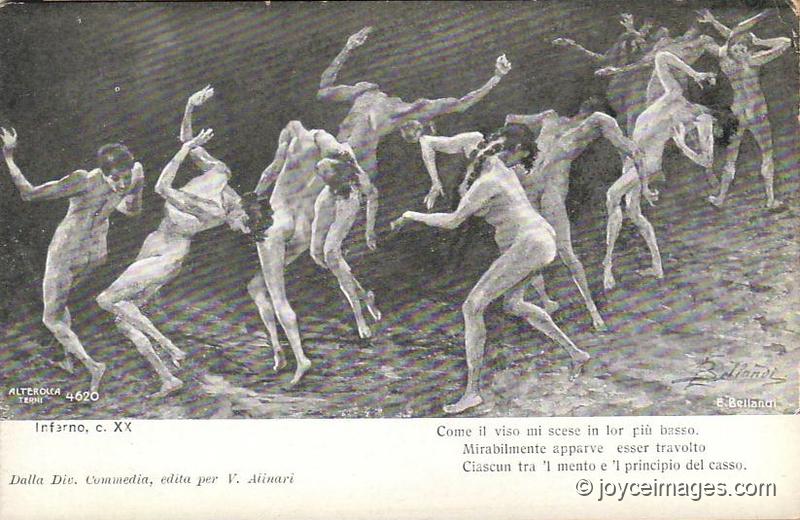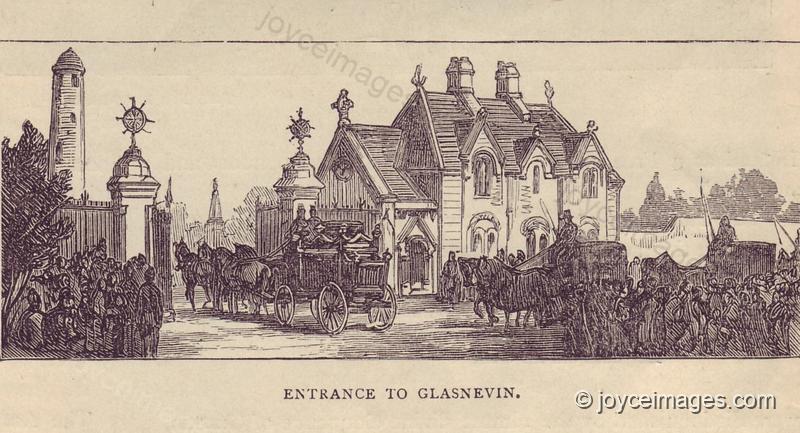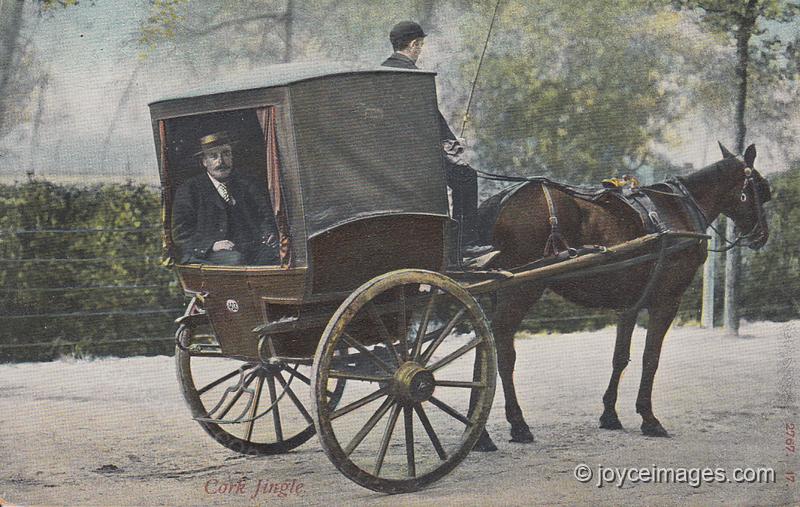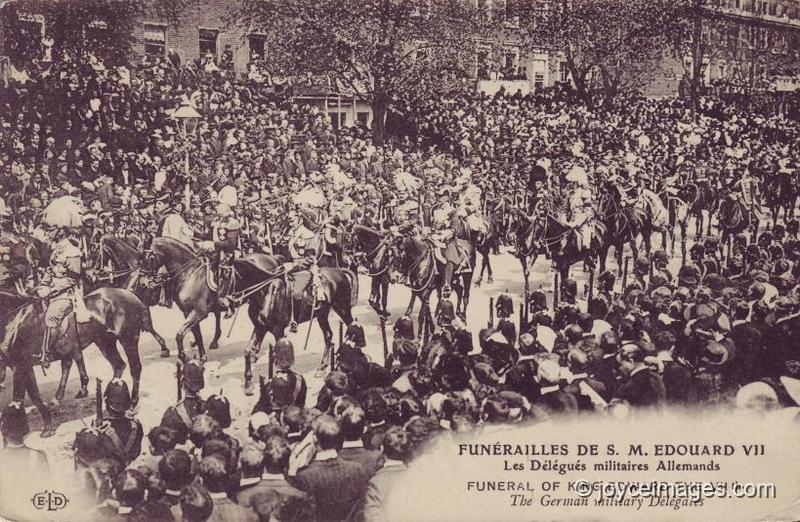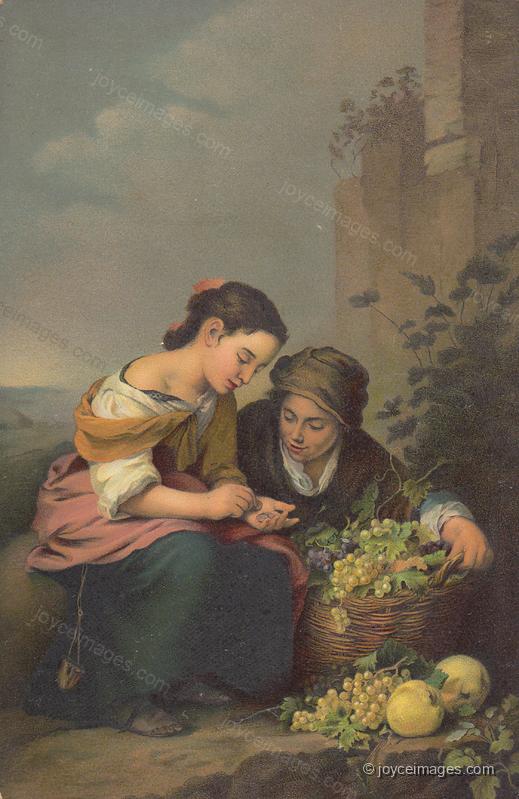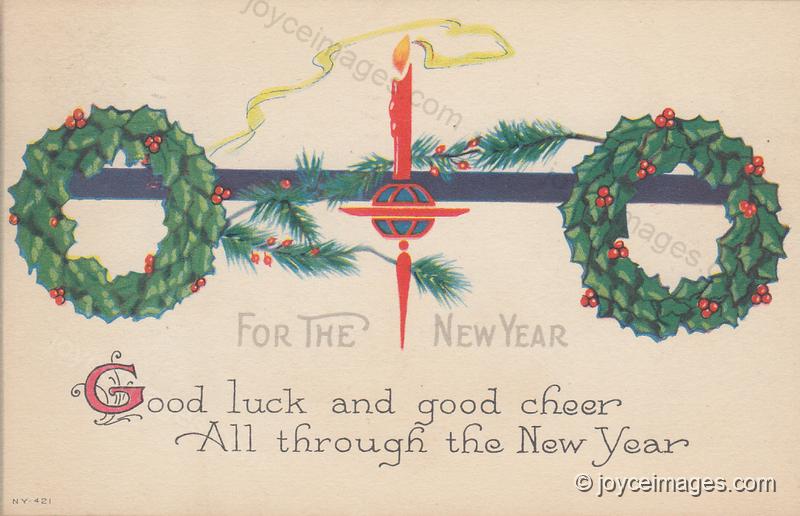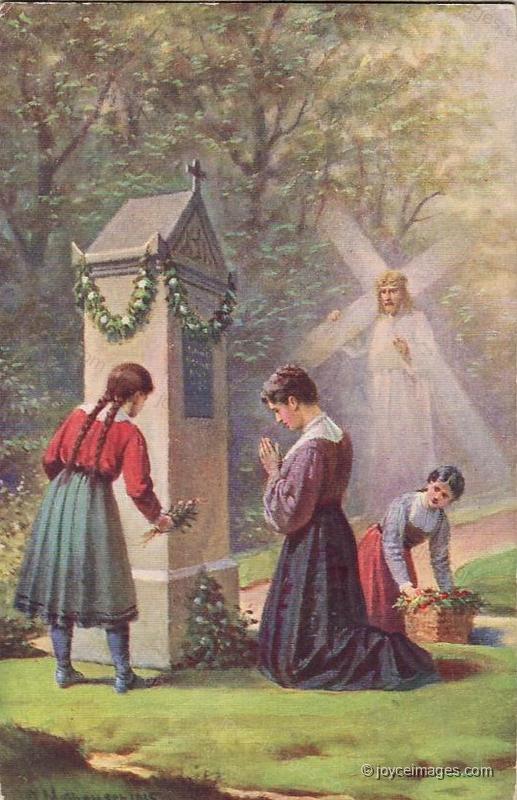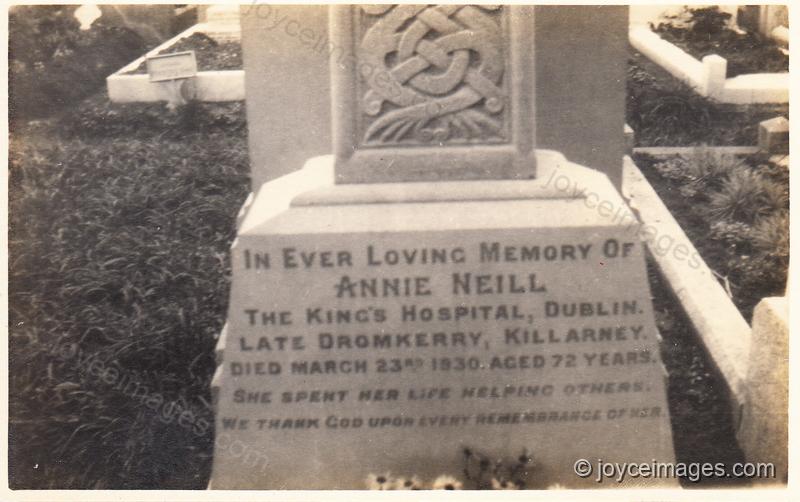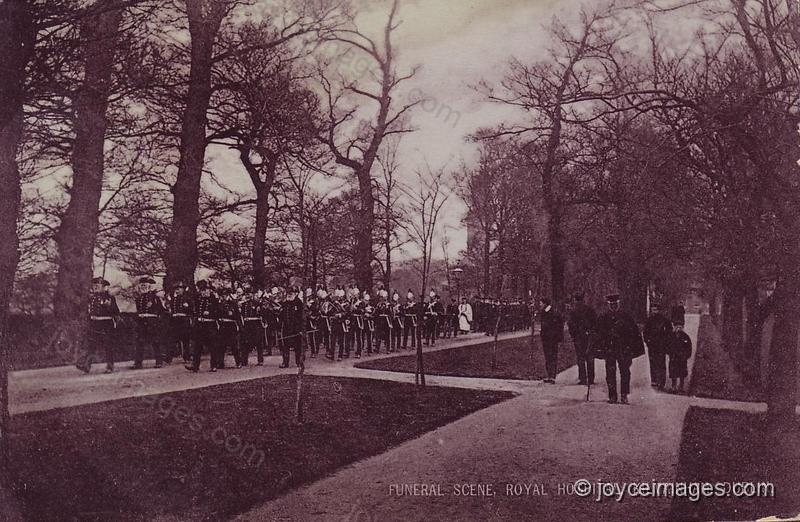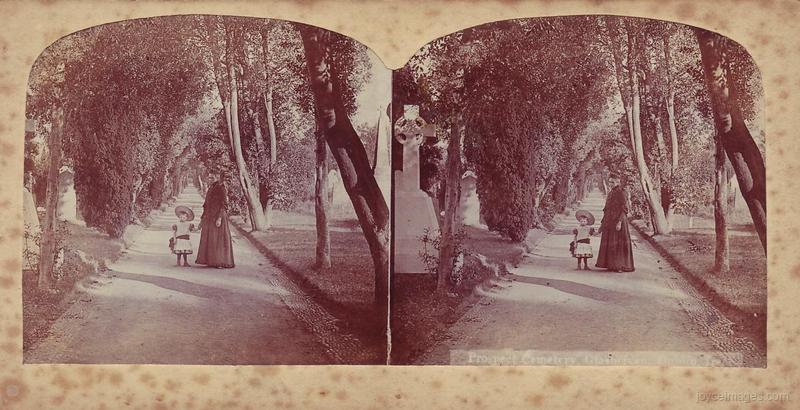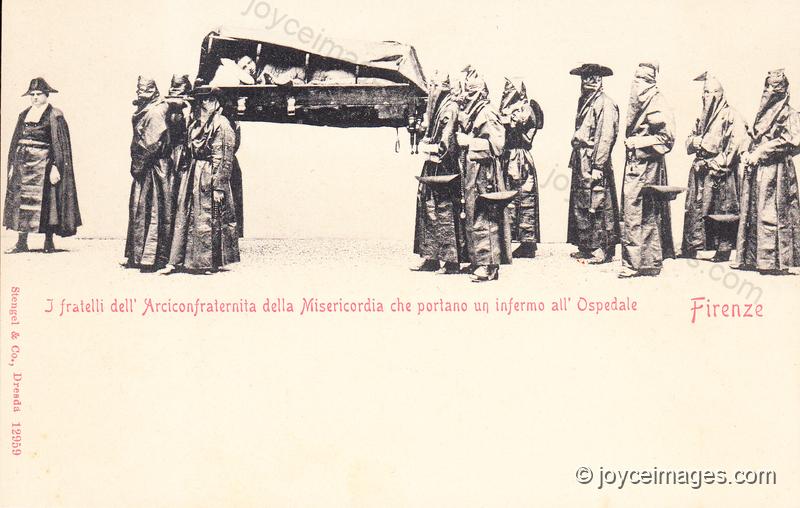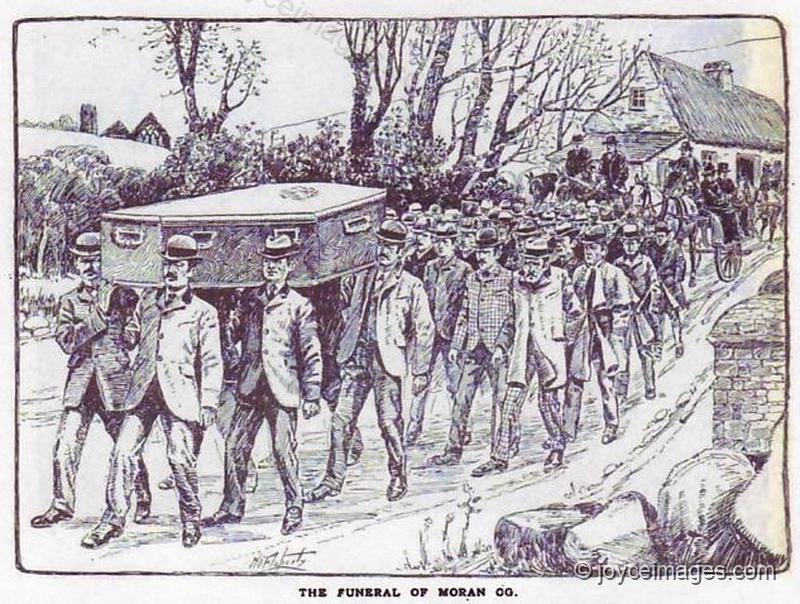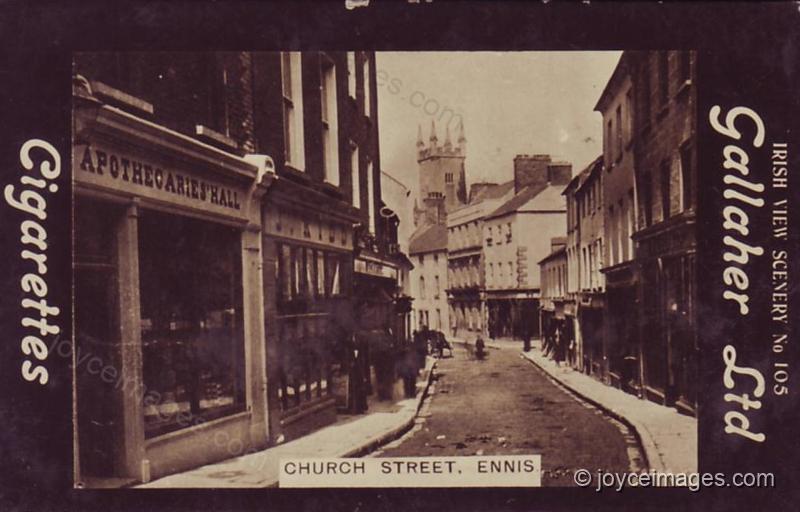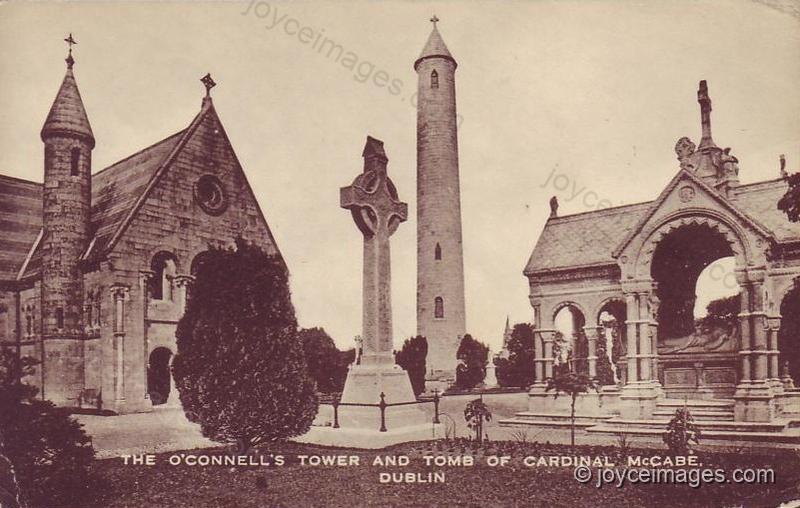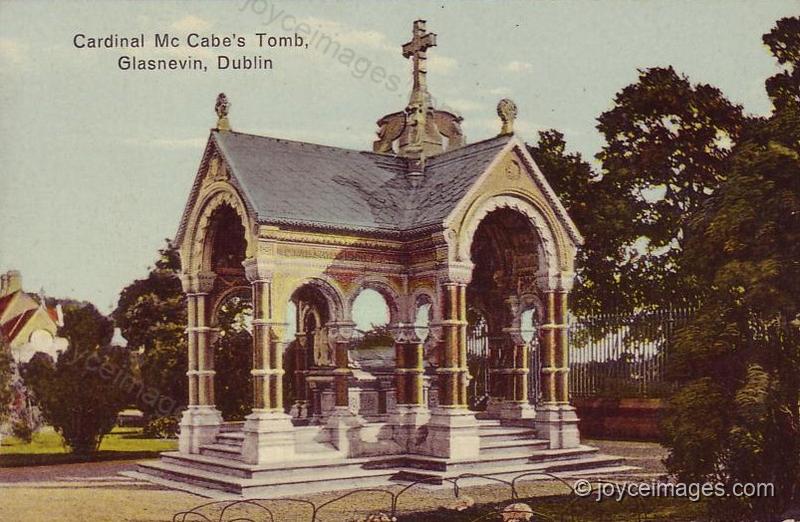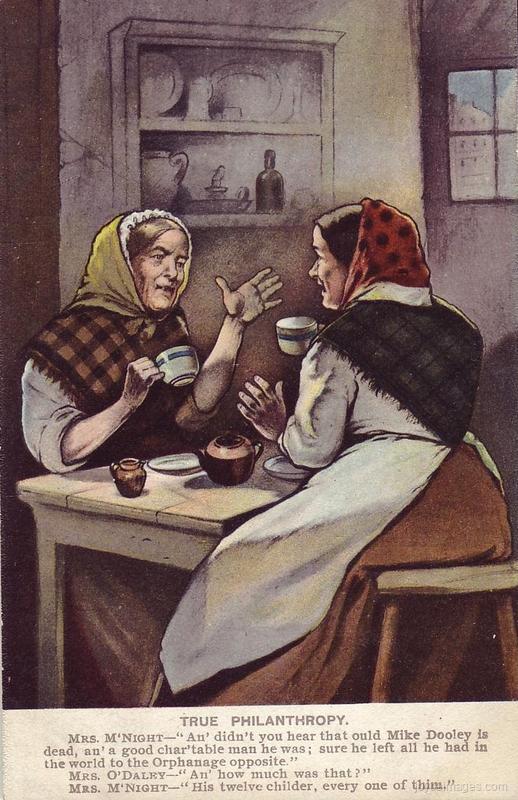"Forms more frequent, white shapes thronged amid the trees, white forms and fragments streaming by mutely, sustaining vain gestures on the air." U6.487)
"The felly harshed against the curbstone: stopped. Martin Cunningham put out his arm and, wrenching back the handle, shoved the door open with his knee." (U6.490)
"He stepped out. Mr Power and Mr Dedalus followed.
Change that soap now. Mr Bloom's hand unbuttoned his hip pocket swiftly and transferred the paperstuck soap to his inner handkerchief pocket. He stepped out of the carriage, replacing the newspaper his other hand still held." (U6.492)
Change that soap now. Mr Bloom's hand unbuttoned his hip pocket swiftly and transferred the paperstuck soap to his inner handkerchief pocket. He stepped out of the carriage, replacing the newspaper his other hand still held." (U6.492)
"Paltry funeral: coach and three carriages. It's all the same. Pallbearers, gold reins, requiem mass, firing a volley. Pomp of death." (U6.498)
In contrasting pomp of death, the funeral of King Edward VII in 1910 - here showing the German military delegation.
In contrasting pomp of death, the funeral of King Edward VII in 1910 - here showing the German military delegation.
"Beyond the hind carriage a hawker stood by his barrow of cakes and fruit. Simnel cakes those are, stuck together: cakes for the dead. Dogbiscuits. Who ate them? Mourners coming out.
He followed his companions. Mr Kernan and Ned Lambert followed, Hynes walking after them." (U6.500)
He followed his companions. Mr Kernan and Ned Lambert followed, Hynes walking after them." (U6.500)
"Corny Kelleher stood by the opened hearse and took out the two wreaths. He handed one to the boy." (U6.504)
"Where is that child's funeral disappeared to?
A team of horses passed from Finglas with toiling plodding tread, dragging through the funereal silence a creaking waggon on which lay a granite block. The waggoner marching at their head saluted. Coffin now. Got here before us, dead as he is. Horse looking round at it with his plume skeowways. Dull eye: collar tight on his neck, pressing on a bloodvessel or something. Do they know what they cart out here every day? Must be twenty or thirty funerals every day." (U6.506)
A team of horses passed from Finglas with toiling plodding tread, dragging through the funereal silence a creaking waggon on which lay a granite block. The waggoner marching at their head saluted. Coffin now. Got here before us, dead as he is. Horse looking round at it with his plume skeowways. Dull eye: collar tight on his neck, pressing on a bloodvessel or something. Do they know what they cart out here every day? Must be twenty or thirty funerals every day." (U6.506)
"Funerals all over the world everywhere every minute. Shovelling them under by the cartload doublequick. Thousands every hour. Too many in the world." (U6.514)
"Mourners came out through the gates: woman and a girl. Leanjawed harpy, hard woman at a bargain, her bonnet awry. Girl's face stained with dirt and tears, holding the woman's arm, looking up at her for a sign to cry. Fish's face, bloodless and livid." (U6.517)
"The mutes shouldered the coffin and bore it in through the gates. So much dead weight. Felt heavier myself stepping out of that bath." (U6.521)
"First the stiff: then the friends of the stiff. Corny Kelleher and the boy followed with their wreaths. Who is that beside them? Ah, the brother-in-law.
All walked after." (U6.522)
All walked after." (U6.522)
"Martin Cunningham whispered:
- I was in mortal agony with you talking of suicide before Bloom.
- What? Mr Power whispered. How so?
- His father poisoned himself, Martin Cunningham whispered. Had the Queen's hotel in Ennis. You heard him say he was going to Clare. Anniversary.
- O God! Mr Power whispered. First I heard of it. Poisoned himself!" (U6.526)
- I was in mortal agony with you talking of suicide before Bloom.
- What? Mr Power whispered. How so?
- His father poisoned himself, Martin Cunningham whispered. Had the Queen's hotel in Ennis. You heard him say he was going to Clare. Anniversary.
- O God! Mr Power whispered. First I heard of it. Poisoned himself!" (U6.526)
"He glanced behind him to where a face with dark thinking eyes followed towards the cardinal's mausoleum. Speaking." (U6.533)
'The cardinal' is Edward McCabe (1816 - 1885), his mausoleum the work of Sir Thomas Farrell. The son of poor parents, McCabe was educated at Maynooth and ordained in 1839. He served in several Dublin churches, became parish priest of Kingstown (1865), Archbishop of Dublin (1879), then cardinal (1882).
'The cardinal' is Edward McCabe (1816 - 1885), his mausoleum the work of Sir Thomas Farrell. The son of poor parents, McCabe was educated at Maynooth and ordained in 1839. He served in several Dublin churches, became parish priest of Kingstown (1865), Archbishop of Dublin (1879), then cardinal (1882).
From the CE 1910: 'These were troubled times in Ireland, the years of the Land League and of the National League, of violent agitation and savage coercion. In pastorals and public speeches Cardinal McCabe ranged himself against agitation and on the side of government and law, with the result that Nationalist newspapers and public men attacked him as a 'Castle' bishop, who favoured coercion and was an enemy of the people. His life was threatened and for a time he was under the protection of the police.'
"- Was he insured? Mr Bloom asked.
- I believe so, Mr Kernan answered. But the policy was heavily mortgaged. Martin is trying to get the youngster into Artane.
- How many children did he leave?
- Five. Ned Lambert says he'll try to get one of the girls into Todd's.
- A sad case, Mr Bloom said gently. Five young children." (U6.535)
Ireland had Industrial Schools for 'neglected, orphaned and abandoned children,' teaching them a trade with the goal of preventing delinquency and crime; they were established by the Industrial Schools Act (1868). They were run by religious orders, funded by the public, and regularly inspected. In 1902 there were 68 Industrial Schools in Ireland (of which 7 were in Dublin); Artane was the largest with some 800 'inmates.' (Thom's 1904)
- I believe so, Mr Kernan answered. But the policy was heavily mortgaged. Martin is trying to get the youngster into Artane.
- How many children did he leave?
- Five. Ned Lambert says he'll try to get one of the girls into Todd's.
- A sad case, Mr Bloom said gently. Five young children." (U6.535)
Ireland had Industrial Schools for 'neglected, orphaned and abandoned children,' teaching them a trade with the goal of preventing delinquency and crime; they were established by the Industrial Schools Act (1868). They were run by religious orders, funded by the public, and regularly inspected. In 1902 there were 68 Industrial Schools in Ireland (of which 7 were in Dublin); Artane was the largest with some 800 'inmates.' (Thom's 1904)
